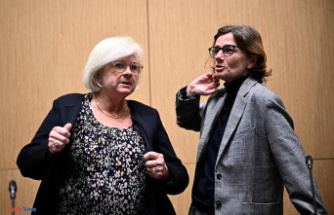Georgia legislators have introduced a bill that would ban discussions on gender identity and sexual orientation in private school classrooms.
The Common Humanity in Private Education Act is co-sponsored and sponsored by 10 Republican state senators. It states that no private or nonpublic school or programme... shall encourage, compel or encourage classroom discussions of sexual orientation or gender identity in primary grades or in a way that is inappropriate for the age or developmental stage of the student.
The Atlanta Journal-Constitution quoted Burt Jones as his sponsor. He said, "No teacher should promote gender identity discussions in a classroom setting -- this is exactly what this bill states and why I support them."
Although the bill's supporters claim it promotes parental rights, inclusion, and LGBTQ advocates argue that it is part of a larger effort to restrict the rights of LGBTQ youths nationwide.
Jeff Graham, executive director of Georgia Equality's LGBTQ advocacy group Georgia Equality, stated that "we know it'snt about parental rights." It's about limiting the activities, participation, and learning of children at school.
This measure would prohibit private school teachers in the state from "inappropriately discussing gender identity with children" or adopting critical race theory. It also would forbid the promotion of the notion that "an individual, solely based on the individual's race/sex bears responsibility for past actions by other members of a same race/sex."
The bill was introduced on the same day that the Florida Senate passed the Parental Rights in Education Bill, . Its critics called it the "Don't Say Gay” bill because it would limit discussion about LGBTQ issues at school.
The bill from Florida has attracted national attention and is expected to be signed by the Republican governor. Ron DeSantis is not the only state to have introduced similar legislation this year.
In January, Tennessee Republicans introduced a billthat would prohibit public schools in grades K-12 from using textbooks and instructional materials that "promote normalize, support or address lesbians, gay, bisexual or transgender lifestyles (LGBT)." House Republicans approved the legislation Tuesday.
Kansas House Republicans presented a bill last month to amend the state's obscenity laws to make teaching classroom materials about homosexuality a Class B misdemeanor.
The Indiana House is considering this year's measure that would ban teachers discussing human sexuality, including abortion, birth control and sexual orientation, with students younger than 18. The Education Committee has been referred to this bill.
Advocates claim that Georgia's bill will not be passed in the Senate by Tuesday's deadline. Georgia Equality stated in an email that the measure's "dangerously vague" provisions would chill support for LGBTQ youth.
The group stated that the Georgia Don't Say Gay Bill is government-sanctioned censorship disguised under nondiscrimination. It stated that a third of the same-sex couples in Georgia are raising children, and that the majority of Georgian families have LGBTQ members.
The group stated that talking about family members could be considered a violation of this bill.












